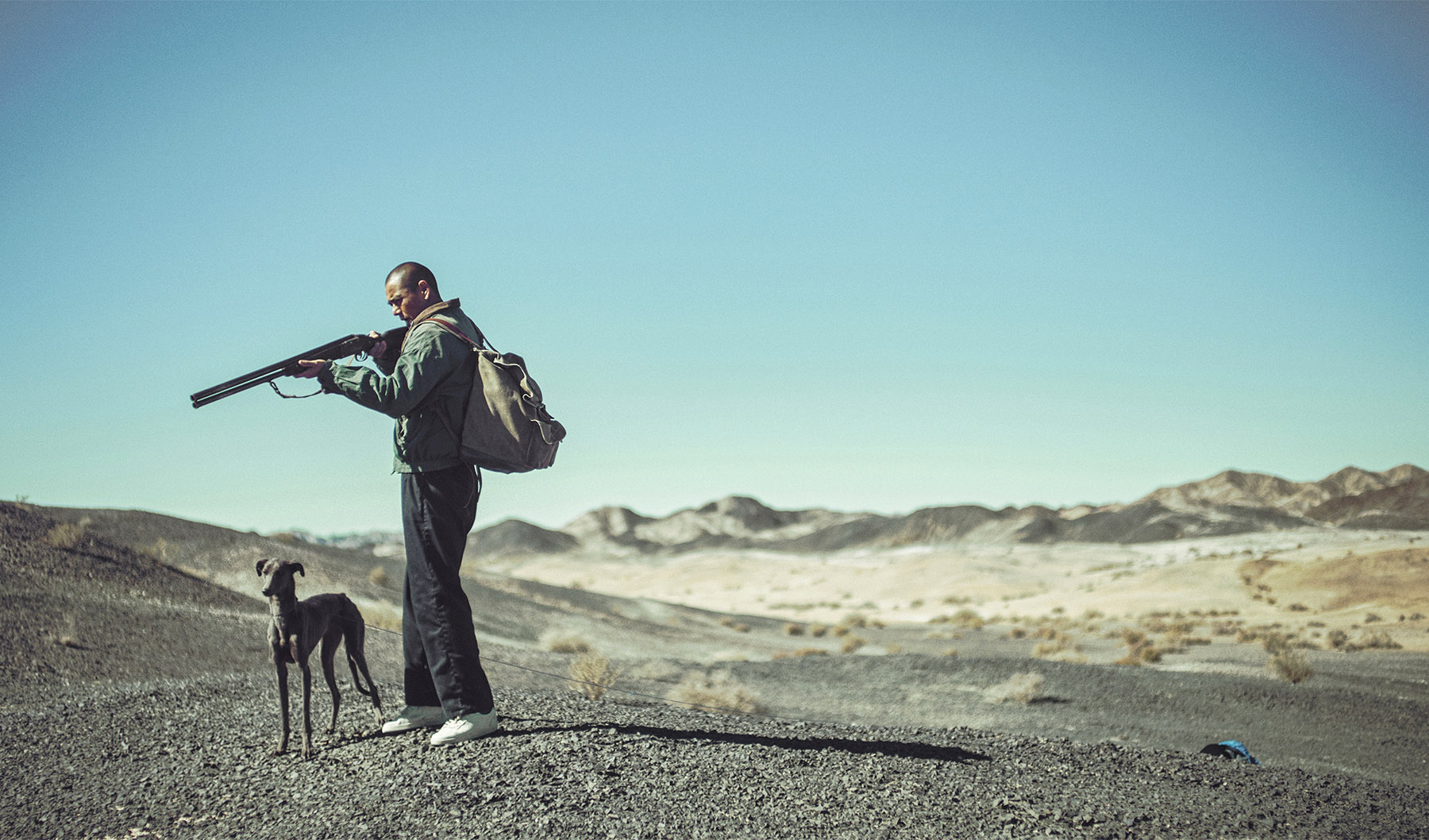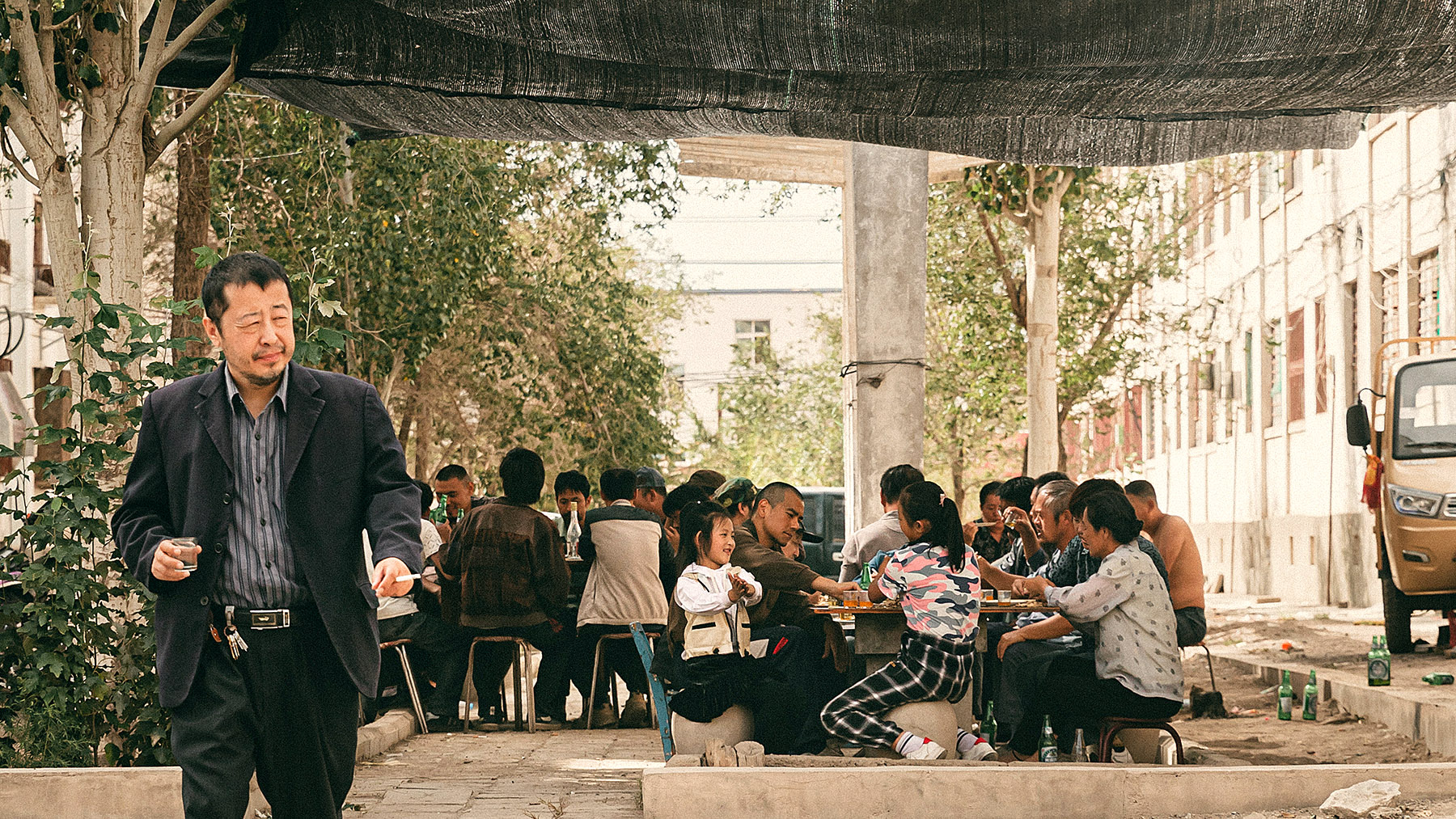
Sixth-generation Chinese director Guan Hu is best known for his big-budget, often historical, epics. He directed the opening segment of My People, My Country (2019) — an anthology film based on the founding of the People’s Republic of China in 1949 — and also 2020’s The Eight Hundred, which chronicled the strategic 1937 defense of a Shanghai warehouse during the War of Resistance Against Japanese Aggression (1931-45), known in the West as the Second Sino-Japanese War. He clearly works well with a big canvas.
So it’s something of a surprise to see Guan, who could have all the resources he wanted, scale way, way back for Black Dog — a neo-Western redemption story set against the backdrop of a rapidly modernizing China in the weeks before the 2008 Olympics. For all the social commentary the co-scriptwriters — Guan and his regular collaborator Ge Rui and newcomer Wu Bing — could have made about the weight of progress on average people, they chose instead to forge a relationship drama — with some truly dark comedy — about living in the margins and having the courage to grab second chances. Black Dog won Guan the Un Certain Regard prize at Cannes this year, and the canine star, Jack Russell greyhound mix Xin, won the Palm Dog Award. That is entirely deserved.
ALSO READ: Funny things happen on the way to freedom
After a pack of stray dogs forces a bus off a desolate road, taciturn ex-convict Erlang (Eddie Peng, Ann Hui’s Love After Love), who had been serving a term for manslaughter, finally returns to his hometown on the fringes of the Gobi Desert. It’s a dusty dying town far from the bright lights of Beijing, but nonetheless, the authorities want the town rid of its stray-dog problem. Erlang’s probation officer signs him up for the dogcatching crew run by Uncle Yao (Mountains May Depart director Jia Zhangke) — largely because no one else wants him. After he had spent some time rounding up strays and looking specifically for a black dog that’s rabid, Erlang finds the mistrustful, nervous and isolated pooch, and they form a connection that makes better creatures of both.

Movies about two broken souls coming together to heal each other are a dime a dozen, but for some reason, probably a myriad of them, Black Dog is particularly effective and affecting. Cinematographer Gao Weizhe’s widescreen images have a barren elegance to them that make Erlang’s being resigned to a life of disconnection almost palpable.
The town looks grim and unwelcoming, and has a mesmerizing grace at the same time. It’s broken down too — on the verge of demolition to make way for shiny new factories, another reflection of Erlang and the black dog’s faded glory.
ALSO READ: Get immersed in Europe’s finest
After years of being at the receiving end of disregard, Erlang and his new companion find a way to live again. Peng really carries the film, turning in a nearly silent, completely physical, performance that is matched by Xin. This might sound incredible, but there is no denying the dynamic between them. The friendship between man and dog injects the film with the bulk of its resonant emotion (Peng adopted Xin after filming wrapped).
On the flip side, Black Dog suffers for having too many unnecessary plot threads that are ultimately left dangling. Erlang flirts with the idea of romancing visiting circus performer Grape (Tong Liya, The Taking of Tiger Mountain). Butcher Hu (Hu Xiaoguang, Guan’s Mr. Six) comes looking for revenge — until he doesn’t. Erlang slowly reconciles with his estranged father. There’s a zoo that needs looking after. None of these help deliver the catharsis that Erlang and his dog need. Watching them deliver it for each other is plenty.


